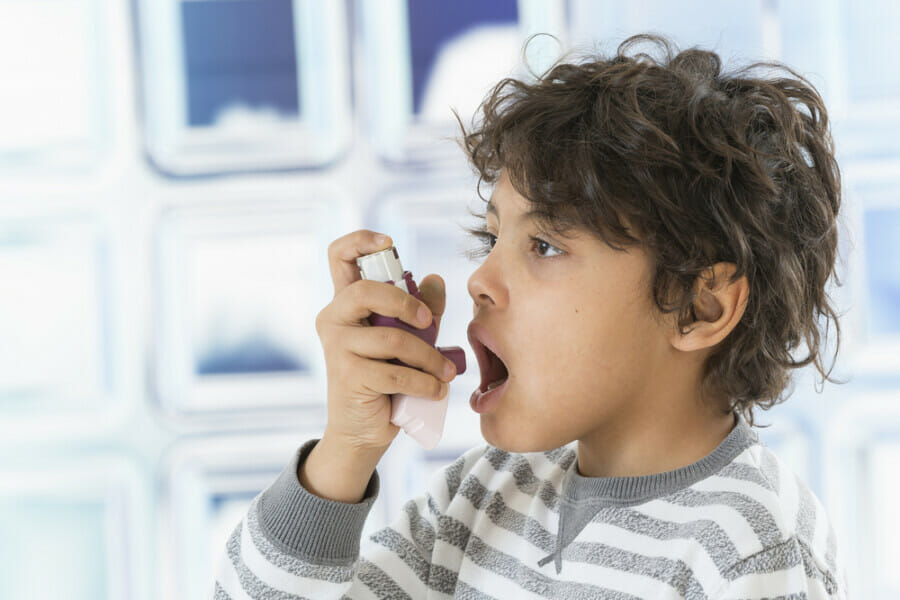Understanding Asthma: 5 Key Points for Parents
Experiencing a sudden tightness in your throat can be alarming. When attempts to clear your airways fail and breathing becomes laborious like drawing air through a straw, you may find yourself amidst an asthma attack. Moments of panic accompanied by rapid breathing and wheezing sounds engrave the reality of the situation on you.
Understanding what a child with asthma undergoes during an attack can be challenging if you haven’t experienced it firsthand. Here are five essential insights to help you support your child effectively through their asthma journey. Together, you can navigate through this challenging terrain.
1. Asthma Triggers Are Varied
Triggers refer to factors that can set off an asthma attack, and they encompass various elements such as:
- Tobacco Smoke – Exposure to cigarette smoke can trigger asthma attacks and even instigate asthma development in otherwise healthy children.
- Pets – If your child is allergic to pets like cats, dogs, or birds, keeping the animal out of their room and maintaining a clean living space is vital. If necessary, rehoming the pet might be considered.
- Pollen – Certain individuals experience asthma attacks due to pollen allergies and find relief by changing surroundings or during vacations.
- Dust, Dust Mites, or Mold – Common irritants like dust, dust mites, and mold can trigger asthma. Keeping a clean household, eradicating mold, and using air filters can be beneficial. Also, maintaining clean bedding and using dust-mite-proof bedding covers are prudent measures.
- Air Pollution – Air pollution is a recognized asthma trigger and can lead to asthma attacks and even the development of the condition. Taking precautions like closing car windows in traffic, avoiding rush hour travel, and staying indoors during poor air quality periods is advisable.
- Exercise – For some individuals, exercising can trigger asthma. Consulting a doctor on how your child can safely engage in physical activities is imperative.
- Respiratory Infections – Certain viral and bacterial infections can induce asthma development and trigger attacks.
Asthma is a severe condition that narrows airways, yet with proper management, both you and your child can cope. Identifying triggers is pivotal in the treatment process.
2. Seeking Medical Advice Is Crucial
If you haven’t already, schedule a doctor’s appointment for your child to receive an asthma diagnosis. The doctor can recommend treatments to help manage the condition. There are two main categories of asthma medications: rescue medications for acute relief during attacks and long-term control medications for daily management.
Rescue medications like inhalers, nebulizers, or epi-pens are used to treat severe allergic reactions triggering asthma attacks. Long-term control medications are prescribed for regular use to facilitate better disease management.
3. Take Asthma Seriously
When your child mentions breathing difficulties, it’s crucial not to dismiss their concerns as mere theatrics. Even mild asthma attacks can cause distressing breathing challenges for them.
Act promptly by administering rescue medication or seeking help. Left untreated, an asthma attack can lead to severe consequences like unconsciousness, brain damage, or even death.
4. Accessibility of Rescue Medications Is Key
Keep rescue medications like inhalers or epi-pens within easy reach. Depending on your child’s age, consider storing these medications in your purse, their backpack, or both for quick accessibility when needed.
Request additional inhalers or epi-pens to have them in multiple locations and ensure to check their expiration dates regularly.
5. Inform Your Child’s Educators
While your child may feel self-conscious about their asthma, it’s essential to inform school staff about their condition, particularly the nurse and physical education instructor. Educators can provide assistance during asthma attacks at school, ensuring the child receives prompt help.
Empower your child to manage their condition during school hours, allowing them to use their inhaler or take breaks in case of an emergency. Ensure they understand that their health takes priority over any rigid school rules.
Collaborate to Effectively Manage Your Child’s Asthma
One crucial aspect to remember if your child has asthma is that while it’s not curable, it is manageable. By working together, you can navigate the challenges associated with asthma.
For some individuals, trigger avoidance suffices to alleviate symptoms, while others might require continuous medication or specific lifestyle adjustments. Consult your doctor to devise a long-term asthma treatment plan tailored to your child’s needs.

















